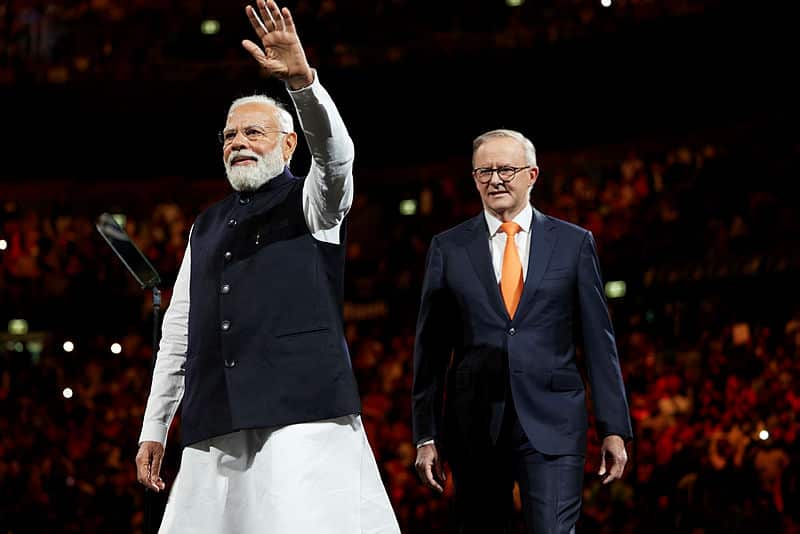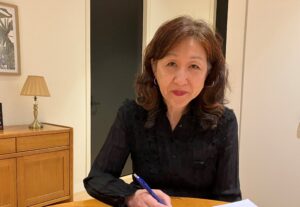
Maya Pilbrow
Critics have called out Prime Minister Anthony Albanese for his failure to publicly raise concerns over India’s treatment of religious minorities during Indian Prime Minister Narendra Modi’s recent visit to Australia.
Mr Modi’s visit coincided with what human rights advocates called a worrying increase in violence against religious minorities in India.
Human Rights Watch Australia director Daniela Gavshon said she was disappointed Mr Albanese did not publicly raise concerns over these issues during Mr Modi’s recent visit.
“The Australian government will often say they have these conversations quietly, that they’re not here to lecture the Indian government,” she said.
A Department of Foreign Affairs and Trade spokesperson said Australia and India engaged regularly on human rights issues, including at a ministerial level.
After meeting with the Indian foreign minister in March, Australian Foreign Minister Penny Wong was asked if India’s human rights record had been discussed.
“You would anticipate in our engagement with all countries that those values form part of how we engage,” Senator Wong said.
Ms Gavshon said it was clear that Mr Modi did not feel the need to keep discussions about civil rights private.
“Prime Minister Modi has felt completely comfortable talking about what’s going on internally in Australia,” she said.
Mr Modi said Mr Albanese had assured him that strict action would be taken in response to attacks on Hindu temples in Australia, speaking at a press conference on 24 May.
Ms Gavshon said systematic discrimination against minority groups in India had increased under the Modi government.
Muslim communities have borne the brunt of the violence, with several instances of Hindu mobs attacking Muslim protesters leading to injuries and even death according to HRW.
Under recent anti-conversion laws, Christian communities have been legally persecuted for allegedly luring Hindus to convert. Christians have been subject to forcible reconversion by Hindu groups.
Ms Gavshon said violence from Hindu majoritarian groups affiliated with Mr Modi’s Bharatiya Janata Party had become increasingly normalised.
Read more: Christians face rising hate as India’s anti-conversion laws unleash violence
Ms Gavshon said both India and Australia had signed up to be rights respecting countries, both having affirmed the UN Universal Declaration of Human Rights.
“For a country like Australia to be able to speak up and show people inside India that human rights matter is key,” she said
Australian & Asian Missions Association cofounder Helen Turner said she found the Australian government’s refusal to speak up hypocritical.
She said Mr Modi’s recent visit was a missed opportunity on the Australian government’s behalf to call attention to this issue.
She said the Modi government turned a blind eye to and even encouraged attacks on non-Hindu places of worship.
She said a common occurrence was for a mob to drag Christian worshippers out of a church, beat them, break all the furniture and then set the building on fire.
“Nobody is saying anything about ongoing regular violent human rights abuses against Christians in India, in village and cities,” she said.
Dr Turner, who has done mission work in India since 1984, said there was a lack of media coverage in India of the persecution of Christians.
Senator Wong and the Department of Foreign Affairs and Trade have been approached for comment.
For more faith news, follow The Melbourne Anglican on Facebook, Twitter, or subscribe to our weekly emails.







